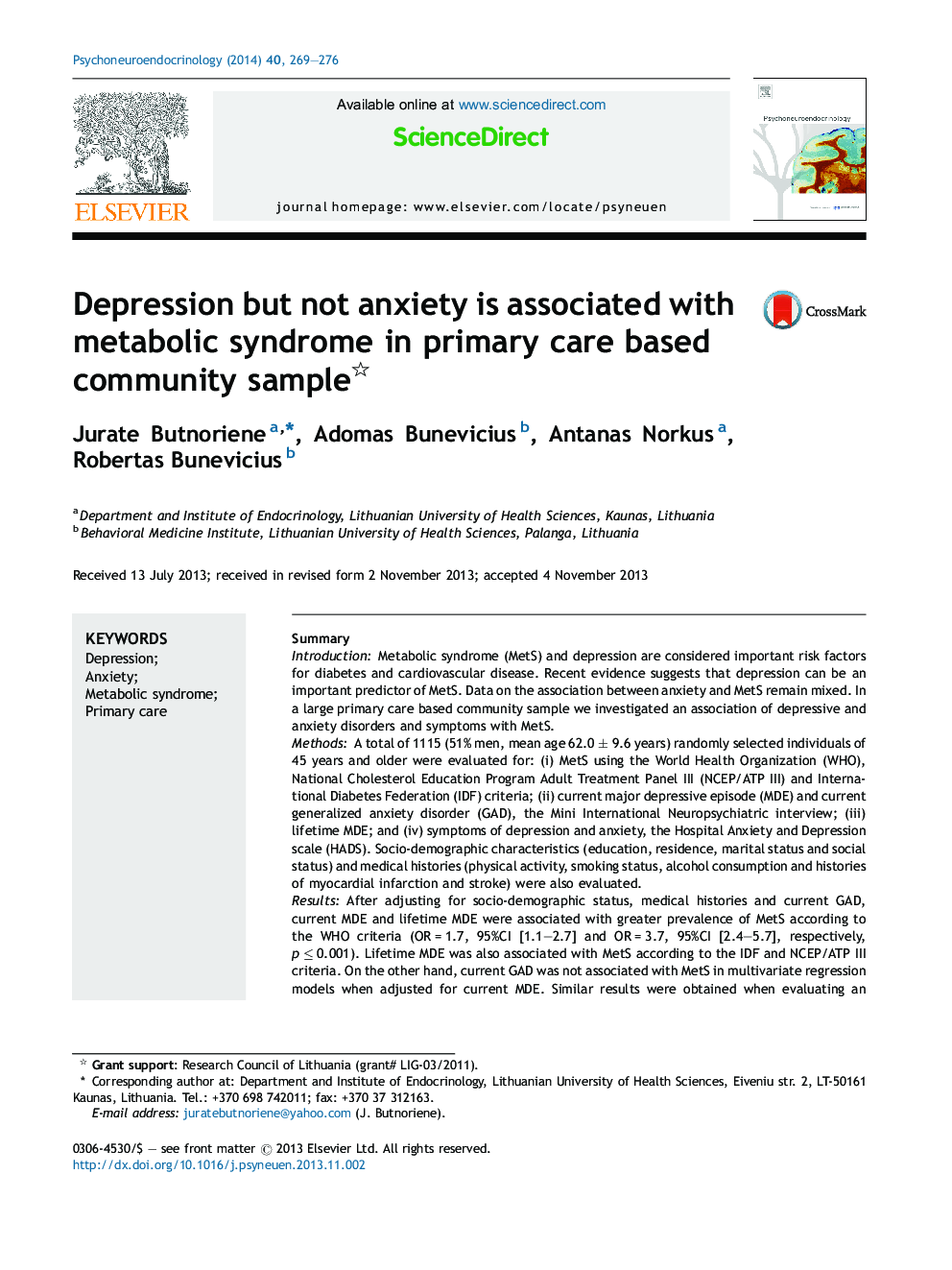| کد مقاله | کد نشریه | سال انتشار | مقاله انگلیسی | نسخه تمام متن |
|---|---|---|---|---|
| 335785 | 547025 | 2014 | 8 صفحه PDF | دانلود رایگان |
SummaryIntroductionMetabolic syndrome (MetS) and depression are considered important risk factors for diabetes and cardiovascular disease. Recent evidence suggests that depression can be an important predictor of MetS. Data on the association between anxiety and MetS remain mixed. In a large primary care based community sample we investigated an association of depressive and anxiety disorders and symptoms with MetS.MethodsA total of 1115 (51% men, mean age 62.0 ± 9.6 years) randomly selected individuals of 45 years and older were evaluated for: (i) MetS using the World Health Organization (WHO), National Cholesterol Education Program Adult Treatment Panel III (NCEP/ATP III) and International Diabetes Federation (IDF) criteria; (ii) current major depressive episode (MDE) and current generalized anxiety disorder (GAD), the Mini International Neuropsychiatric interview; (iii) lifetime MDE; and (iv) symptoms of depression and anxiety, the Hospital Anxiety and Depression scale (HADS). Socio-demographic characteristics (education, residence, marital status and social status) and medical histories (physical activity, smoking status, alcohol consumption and histories of myocardial infarction and stroke) were also evaluated.ResultsAfter adjusting for socio-demographic status, medical histories and current GAD, current MDE and lifetime MDE were associated with greater prevalence of MetS according to the WHO criteria (OR = 1.7, 95%CI [1.1–2.7] and OR = 3.7, 95%CI [2.4–5.7], respectively, p ≤ 0.001). Lifetime MDE was also associated with MetS according to the IDF and NCEP/ATP III criteria. On the other hand, current GAD was not associated with MetS in multivariate regression models when adjusted for current MDE. Similar results were obtained when evaluating an association between depression/anxiety symptoms and MetS, since elevated depressive, but not anxiety, symptoms were independently associated with MetS.ConclusionsDepressive, but not anxiety, disorders and symptoms are associated with greater prevalence rate of MetS. Assessment and management of MetS risk factors should be considered in depressed individuals.
Journal: Psychoneuroendocrinology - Volume 40, February 2014, Pages 269–276
